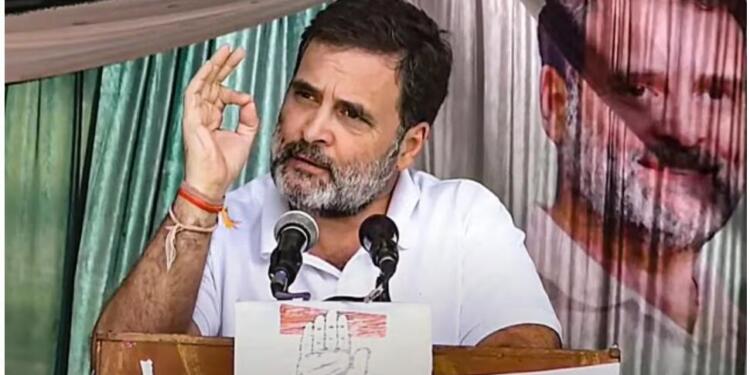In a recent rally in Ramban, Jammu and Kashmir, Rahul Gandhi made headlines by vowing to restore statehood to the region, branding the current Lieutenant-Governor as a ‘raja’ and accusing the central government of unfairly distributing resources to outsiders. This rhetoric comes as part of the Congress party’s campaign strategy ahead of the Jammu and Kashmir Assembly elections. However, Gandhi’s promises and his party’s stance are deeply flawed when viewed through the lens of Kashmir’s complex history and Congress’s past actions.
Historically, the Congress party has had a contentious relationship with Jammu and Kashmir’s political status. When Jammu and Kashmir acceded to India in 1947, it did so with the understanding that its special status under Article 370 would be preserved. The Congress, then under the leadership of Jawaharlal Nehru, played a crucial role in this arrangement. However, the party’s record on Kashmir has been inconsistent and often criticized for contributing to the region’s prolonged instability.
During its tenure, the Congress-led government was instrumental in abrogating the state’s special status in 1953, which was a key moment that altered the dynamics of Kashmir’s relationship with India. This move, initiated under the leadership of Sheikh Abdullah, who was ousted from power and later imprisoned, was a drastic shift away from the previously agreed terms of accession. The removal of Sheikh Abdullah, a popular leader who was a staunch advocate for maintaining a special status, led to years of unrest and dissatisfaction.
Furthermore, the Congress party’s handling of Kashmir in the following decades failed to address the growing demands for autonomy and self-determination. The party’s inconsistent policies and frequent changes in approach towards Kashmir only fueled confusion and dissent within the region. The recent promises by Rahul Gandhi to restore statehood and criticize the current administration for allegedly favoring outsiders seem to ignore the Congress’s historical role in shaping the very issues they now claim to address.
Rahul Gandhi’s statements about restoring statehood to Jammu and Kashmir may resonate with voters, but they also highlight a fundamental disconnect between his current promises and the historical actions of the Congress party. The party’s track record on Kashmir suggests that it has often prioritized political expediency over genuine solutions, leaving the region in a perpetual state of uncertainty.
As Jammu and Kashmir heads towards assembly elections, voters must critically evaluate not only the promises made by leaders like Rahul Gandhi but also the historical precedents set by their parties. The future of Jammu and Kashmir requires more than rhetorical assurances; it demands a consistent and genuine commitment to resolving long-standing issues and fostering true stability and integration.
























